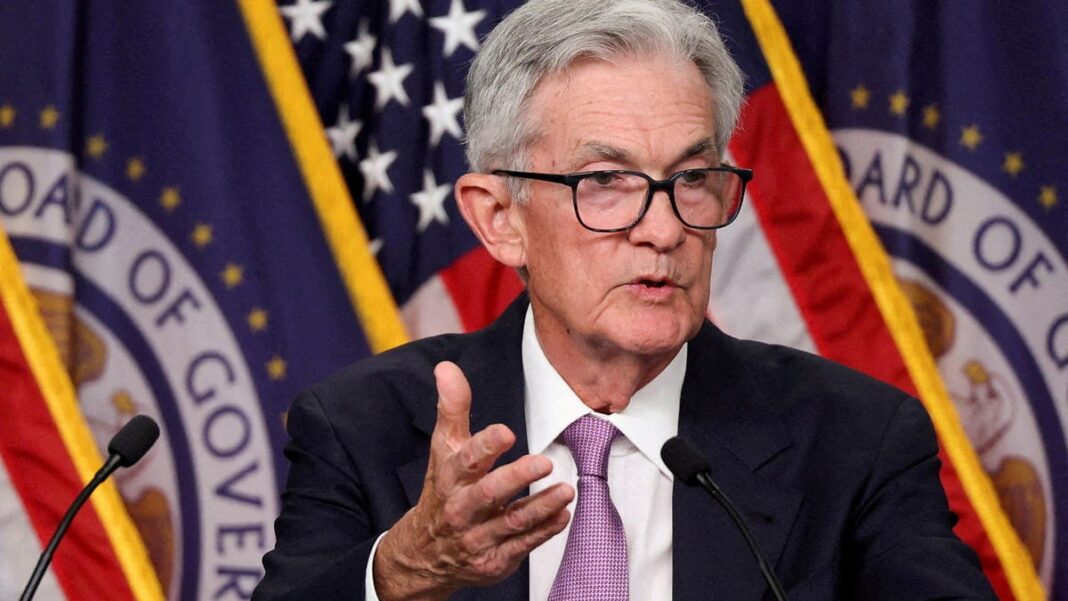Federal Reserve Likely to Lower Interest Rates Again in November as Inflation Declines
Be prepared for falling interest rates.
Experts predict that the Federal Reserve will reduce interest rates by 0.25% during a meeting scheduled for Thursday afternoon, which concludes a two-day session. If this occurs alongside a previous 0.5% reduction in September, it will bring the federal funds rate down 0.75% from its peak of over 5% reached over the past 23 years. The Fed increased rates significantly in 2022 and 2023 to combat rising inflation.
This reduction may lead to gradually lower interest rates for mortgages, auto loans, and other consumer purchases.
If the Fed follows through with this plan, the key focus on Thursday will be the central bank’s comments regarding future rate cuts. Analysts are anticipating another 0.25% cut in December, along with additional cuts next year, though this could change if inflation rises again or if there is a slowdown in the U.S. economy.
When Will the Next Federal Reserve Meeting Be in 2024?
Following today’s meeting, the Federal Reserve will have one more chance to evaluate interest rate adjustments in 2024.
The last Fed meeting for this year is scheduled for December 17-18.
Will the Fed Address the U.S. Election Results in Its Rate Decisions?
Analysts suggest that any discussion on the election will likely be minimal.
Economists anticipate that Fed Chair Jerome Powell will concentrate on the Federal Reserve’s objectives of ensuring maximum employment and maintaining price stability.
“We expect Powell to skillfully evade direct questions related to the election,” remarked Michael Gregory, deputy chief economist at BMO Capital.
Powell is expected to keep his focus on the Fed’s mission of enhancing employment and controlling inflation.
What Is the Fed’s Strategy Regarding Interest Rates?
After an aggressive interest rate cut of 0.5% in September, the Fed is anticipated to lower rates by a more cautious 0.25% during Thursday’s meeting, with expectations of further reductions in the coming year as inflation continues to decline.
However, should the Fed deviate from this cautious approach, it is likely to opt for smaller cuts to ensure ongoing reductions in inflation, economists warn.
This course of action may contradict some forecasters who believe the central bank has largely succeeded in controlling soaring prices and must rapidly lower interest rates to achieve a “soft landing” and avert a recession.
The stock market has reacted positively to the expectation of consistent rate cuts, but a pause in reductions could potentially disrupt equity markets.
Is Inflation Decreasing in 2024?
Inflation is decreasing, albeit not as rapidly as analysts had predicted. The Fed’s preferred measurement of annual inflation fell to 2.1% last month, slightly above the Fed’s target of 2%. However, a core inflation metric that excludes food and energy—watched more closely by the Fed—remained steady at 2.7% and is projected to conclude the year above the forecasted 2.6% by Fed officials.
The costs for services like healthcare and car repairs are still on the rise, partly due to significant wage increases that companies are passing on to consumers.
Consequently, the Fed may need to remain more cautious about a potential inflation resurgence than about a job market slowdown. “There’s no certainty that inflation will drop down to 2%,” noted Marc Giannoni, an economist at Barclays.
Barclays predicts that core inflation could finish 2025 at 2.3%, still above the Fed’s 2% objective.

